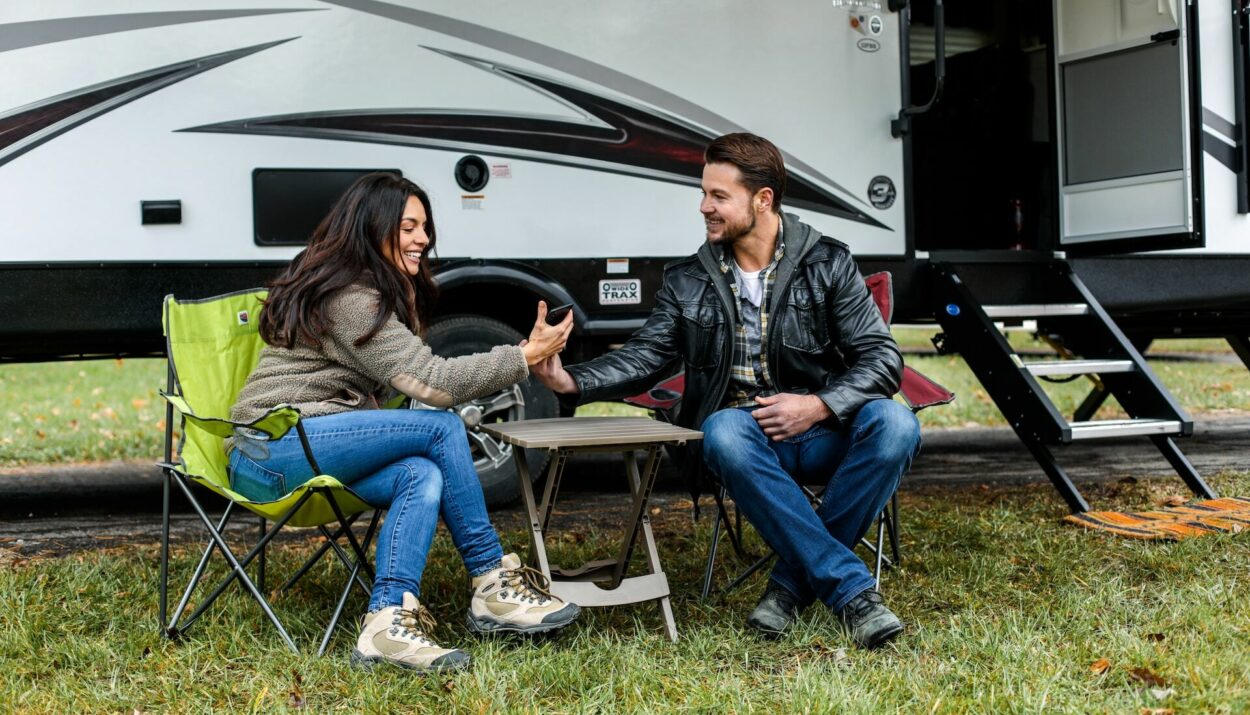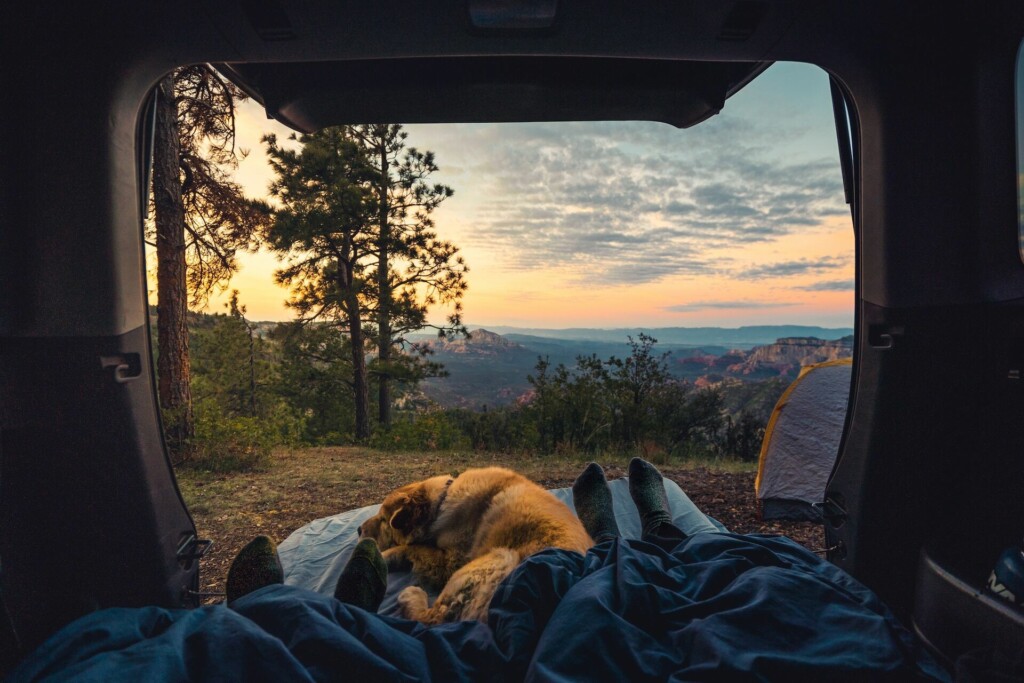Embarking on an RV camping journey is not just a vacation. It’s a lifestyle that transcends the traditional camping experience. From the comfort of a home on wheels to the thrill of spontaneous exploration, RV camping offers a number of benefits that elevate your outdoor adventures.
In this guide, we’ll give you our top tips for finding a campsite that suits your RV camping style. If you own or run a campsite, take note, too. These tips highlight what campers are looking for and can help you to maximize your revenue by increasing your bookings.
Top Tips For Finding a Campsite For Your RV
Location, Location, Location
Consider the destination and nearby attractions. Do you want a scenic spot in the mountains or a site near a beach? Research the area to ensure it aligns with your interests and intentions.
If you’re looking for a more romantic getaway, consider a smaller or less crowded environment. If you’re traveling with kids, finding a campsite with exciting kid-friendly activities and adventures is ideal. Even the most incredible campsite might not be the best fit for you if it’s not in the right place.
Size Matters
Ensure the campsite can accommodate your RV size. Not all sites welcome Class A RVs, or they may only be suitable for Class B and C. Check for length restrictions, hook-up compatibility, and any other size-related considerations. Consider that smaller lots might mean the camping setup is quite cramped.
It’s a lot easier to deal with noise, smells, or other annoyances if everyone has a bit more room to breathe.
Hookups and Amenities
Determine your need for hookups. Some RVers prefer full hookups (water, electricity, and sewerage), while others are comfortable with partial or none. Finding a campsite with amenities like Wi-Fi, BBQ, and recreational facilities can also be considered.
Always double-check that the site has what you need for an enjoyable camping experience, and if there’s any doubt, get in touch with the owners or managers first.
Reviews and Ratings
Utilize online reviews and ratings from fellow RVers. RoverPass is one of many sites that feature listings of several of the best RV parks and campsites. But be sure to look at a wide range of review sources, from Google Reviews to booking sites, to get a well-rounded, well-researched overview.
Reviews provide real, valuable insight into the experiences of others and are a reliable way of gauging whether a campground will suit you. Even if a negative review has been left, it’s great to see how park management responds to disappointing experiences.
Reservations are Your Friend
Popular campgrounds can fill up fast, especially during peak seasons. Make reservations in advance to secure your spot and avoid disappointment. Popular campsites are generally popular for a good reason. These sites have been around long enough to have become a staple vacation stop-off for RV campers from far and wide.
If you want to experience the amazing facilities firsthand, it’s vital that you’re booked and ready well ahead of season. As with any sort of camping expedition, pre-planning is vital. If a campsite doesn’t accept bookings, this may be a red flag. After finding a campsite you like, make sure you have a backup plan just in case you arrive and there’s no space for you.
Budget Wisely
Consider your budget when finding a campsite. Prices can vary widely, and amenities may impact the cost. Balance your desire for comfort with your financial considerations. The most expensive part of any long-distance RV journey is your gas. If you’re setting out on a long drive, it’s important to balance your fuel costs with your camping expenditure. You might also want to consider shorter stays at each location, as well as backup sites in case you run into trouble en route.
RV camping is a comparatively inexpensive way to travel when it comes to accommodation, but greedy boilers, electric stoves, and heaters can easily push your power costs up. Make sure you have alternatives, or you’re in a location where the weather is temperate, and there are outdoor cooking or BBQ facilities.
Pet-Friendly Spaces
If you’re traveling with furry friends, finding a campsite that is pet-friendly is essential. Check for pet amenities and nearby pet-friendly activities. If your animal is well trained, you’ll probably find the campsites will be more relaxed with your friend coming along, but remember there are other guests to consider.
The best route is to phone ahead and double-check that your dog (or cat!) is welcome at the site. This will avoid any unpleasant or awkward interactions on arrival. Some campsites don’t update their terms regularly, so be sure to call ahead and make sure what you’re reading online is the case in the current year.
Check out this Ultimate Guide to RVing and Camping with Dogs for tips on planning a stress-free trip with your dog, must have accessories, and more.
Safety First
Prioritize safety by researching the area’s crime rates, weather conditions, and campground security. Look for well-lit areas and trustworthy facilities. If you have kids, be sure that the campsite is free from dangerous areas or unwatched/unmanaged rivers and streams. If your children are still young, this should impact your decision as it won’t be relaxing if there are potential dangers on your RV’s doorstep.
Be sure to do a good walkaround of the site with your children upon arrival to determine what areas they’re free to explore and what parts of each site require adult supervision.
Local Regulations
Be aware of local regulations and campground rules. Some places may have restrictions on campfires, generator use, or pets. They may also stipulate a “light out” time, no music or instruments, or arrival and departure times. Familiarize yourself with the rules before booking to ensure they don’t cramp your camping style.
Local regulations are also worth researching, especially as they may differ from state to state. If you’re a keen fisherman (or woman), you’ll want to know where the best fishing spots are and where you’re allowed to cast your quality Phenix fishing rod. The same goes for anyone who enjoys hiking, climbing, kayaking, or any other outdoor activity. You need to know what’s allowed and where you can enjoy yourself without falling foul of the law.
Connectivity
If staying connected is important, check the reception in the area. Consider factors like internet access, phone signal strength, and the availability of Wi-Fi to stay connected with the outside world.
RV camping is an excellent way to enjoy the great outdoors while still having some creature comforts. If you know how to choose the right campsite to suit your needs, you’ll get to enjoy all your RV has to offer and all the benefits of spending time in nature.
Happy camping!






